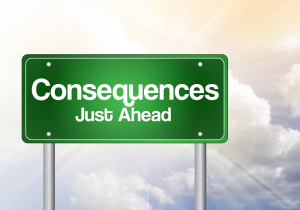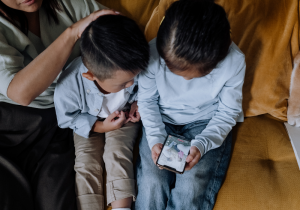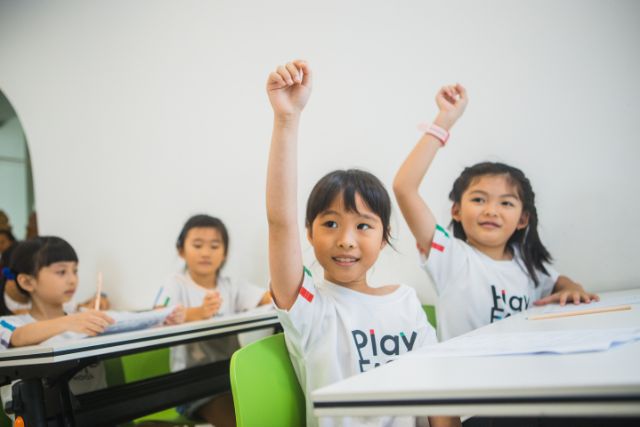At PlayFACTO School, we believe that responsible children do better in life – both academically and emotionally. Positive Education focuses on specific skills that assist our students to strengthen their relationships, build positive emotions, enhance personal resilience, promote mindfulness and encourage healthy lifestyles.
Our Positive Education Value of the Month is none other than Responsibility! Responsibility is essential to every healthy dynamic and it is the glue that holds your relationships together.
Here are 5 ways to instill responsibility in your young ones:
1. Start Early

Childhood can in essence, be defined as a constant state of development. Then, why wait until school age to introduce new ideas? If you start introducing things slowly, there’s a greater chance of this having a stronger impact in later life. So we should use this natural ability of learning to your advantage.
Here, at the most early stages, you want to keep it simple with a basic reward scheme. Stars, snacks or points, for example, are great rewards. You can use them to encourage the likes of:
- Sharing: the ability to share resources will be vital growing up, but here you can simply encourage a sense of selflessness.
- Not wasting resources: does your child waste food or ask for too much? Start rewarding them for using fewer resources where possible.
- Respecting others: today’s world is full of horrible people but a little kindness goes a long way. Teaching children to be nice to strangers—including those who value additional company, such as the elderly—is a vital way to avoid one of the more modern of pitfalls.
2. Teach Cause and Effect

Adults know that every action has consequences and this is certainly true when dealing with the environment and world around us. Children, on the other hand, often don’t understand what they can’t immediately see. This is why we can often get them to clean the house—as the immediate benefits are obvious—but take longer to recycle or understand the need for alternative resources.
Here are a few examples you can try:
- Wasting resources: does one child play with more toys, waste more food, or otherwise cause trouble? Show them that wasting materials this way stretches your financial means. If they can’t share their toys, for instance, then you can’t afford to buy twice as much.
- Saving money: by teaching to save on water bills or cutting down on power, you can save more on bills. This can easily be turned into a family benefit and, consequently, over-usage will have its drain, too.
- Encourage green cleaning: involve children with cleaning, but more importantly, support environmentally responsible cleaning. Take them shopping for cleaning items and let them see what choices you make and why. This will breed environmental consciousness as a normal routine and habit.
The trick in all of these is to show the physical consequences. Children and teenagers will then understand the wider effects their decisions can make. In turn, you can help use this to learn about communities (both in your neighborhood and the wider environment) and how everyone is connected.
3. Offer Adult Roles

Why not let them take over shopping duties, with a chance of sharing some of the savings? During tasks like this you can often review and assess how well they are doing. How cheap was the shopping? How effective did they clean the kitchen and how long did it take them? This way, they can statistically track their progress; a useful skill that will do them well in the adult and larger world.
Overall, the world we live in can become more beautiful should we remember to invest more ideals and values unto upcoming generations. The buck stops at the door of parenting and communal efforts. Through these hacks, we can teach our kids more values. Overall, the world we live in can become more beautiful should we remember to invest more ideals and values unto upcoming generations. The buck stops at the door of parenting and communal efforts. Through these hacks, we can teach our kids more values and responsibility and these will definitely rub off on our beautiful world and the environment for even generations yet unborn.
4. Give them duties
One of the best ways to teach or encourage new ideals is to give people a direct reason to care. As your children get older, you can do this with additional duties, building upon previous information. Did you teach your child to help with recycling? Now try making that their sole responsibility. Whereas previously, they simply did what they were told, now they have to think for themselves. Is this item recyclable? If so, what material is it? With any luck, they might start finding entire new areas where recycling could be implemented!
As your children become teenagers, they’re not a far cry from being an adult. As such, let them take charge by giving them specific goals. Now that they’re motivated, goals give them a need to think about the world around them. It’s no longer about pocket money but ensuring the objective is reached.
5. Encourage Communal Engagement

While smart technology has its benefits, it often draws many into isolation. For children, teenagers and aspiring adults, this poses a problem. Recent surveys suggest as many as 73% of teenagers have access to a smartphone —50% more than just 4 years ago. Yet these smartphones come at a cost. As social media becomes more important, what happens to community? Environmental awareness and other global responsibilities involve a greater understanding of working and living together.
A simple solution? Limit how much time your children have online. Try cutting down their weekend computer use (or even take their smartphone away). Encourage them to go outside and see the world for themselves; maybe then they’ll notice the effects of littering, not cleaning up and other similar vices. Importantly, maybe they could take up volunteering, especially for a cause that helps the elderly, vulnerable, less privileged, or the environment.
H/T: Lifehack
Speak to us today to find out more about our 21 student care centres!
Click Here to whatsapp us for a complimentary tour of a centre near you.






